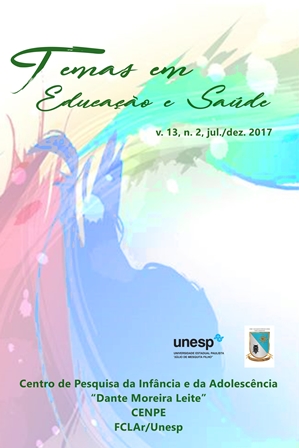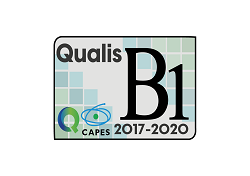Impacto de las ruedas vinculantes en el contexto universitario y comunitário
DOI:
https://doi.org/10.26673/rtes.v13.n2.jul-dez.2017.9599Palabras clave:
Impacto. Terapia Comunitaria Integrativa. Tecnología social. Rueda vinculante.Resumen
Se realizaron 11 ruedas vinculantes con un total de 136 participantes, de los cuales 79 (58, 1%) correspondieron al género femenino y 57 (41,9%) al género masculino. Sin excepción, los y las participantes reportaron experiencias positivas donde el 42,3% de los participantes exterioriza que es un espacio para conocer posibles soluciones de problemas comunes y para crecimiento personal, por lo que el 39% considera que se alivia la carga de los problemas permitiendo bajar los niveles de estrés, al adquirir más confianza mutua entre los/las compañeros/as según expresa el 29.4% de los entrevistados. El estudio muestra que la integración de las ruedas en la práctica de enseñanza-aprendizaje de todas las carreras impacta de forma positiva al permitir a los estudiantes socialicen y comuniquen sus estados emocionales y malestar en general frente a los conflictos familiares y otros factores de riesgos empoderando a la población estudiantil de herramientas que potencian y rescatan su autoestima y resiliencia.
Descargas
Citas
AZEVEDO, H. Pesquisas brasileiras sobre terapia comunitária integrativa. Rev. Bras. Pesq. Saúde, Vitória, 15 (3): 114-120, jul-set. 2013.
BARRETO, A. Terapia Comunitaria Integrativa paso a paso. Edición para Ecuador. Quito. Digital Center. 2015.
DAGNINO, R. Tecnología social: ferramenta para construir outra sociedade. Campinas/SP: Unicamp, 2009.
GUTIÉRREZ R, L. E.; TOCANCIPÁ, J.; MAY T.; RAMIREZ, A.; LLAMBÍ L. Higher education and indigenous nationalities: challenges for inclusion in the ecuadorian amazonian region. Creative Education, 2015, 6, 847-854. Published Online, jun. 2015 in SciRes.
HIRSCHI, T. Causes of Delinquency. Berkeley: University of California Press.1969.
LAZARTE, R. Terapia Comunitaria Reflexiones. João Pessoa, 1 de may. de 2011. Disponible en: http://www.delagracia.de/Terapia%20Comunitaria%20Reflexiones.pdf. Acesso em: 23 mar. 2017
MARTINES, F. P. La importancia del nombre propio en la constitución del sujeto. Revista de Humanidades No 30 p. 155-166. Disponible en: http://revistas.uned.es/index.php/rdh/article/view/18207/15284. Acesso em: 23 mar. 2017
MORIN, E. La méthode. Nouvelle édition. Paris: Opus/ Éditions du Seuil. 2008.
SENPLADES. Plan Nacional para el Buen Vivir 2013-2017. Secretaría Nacional de Planificación y Desarrollo. Disponible en: http://www.buenvivir.gob.ec/herramientas. Quito, Ecuador 2013. Acesso em: 23 mar. 2017.
SCOPPETA, O. Discusión sobre la Evaluación de Impacto de programas y proyectos sociales en saludpública. Univ. Psychol. Bogotá (Colombia) 5 (3): 695-703, octubre-diciembre de 2006.
RUIZ, J.; MUZZETI, L.; PALOMA, M.; PERREIRA, S.; FERNANDES, S.; BORGES, T. de S. Os seis pilares da autoestima e a integração corpo e mente. Temas em Educ. e Saúde, vol. 11, jan./dez., p. 27-34, 2015.
THOMAS, H.; FRESSOLI, M. Repensar las Tecnologías Sociales: de las Tecnologías apropiadas a la Adecuación socio-técnica. Congreso Latinoamericano y Caribeño de Ciencias Sociales – 50° Aniversario de FLACSO, Quito 2007. Disbonible en: http://www.conicet.gov.ar/new_scp/detalle.php?keywords=&id=22812&congresos=yes&detalles=yes&congr_id=1210103. Acesso em: 17 mar. 2017.
UNESCO. La educación superior en el S. XXI: visión y acción. Documento de trabajo. Conferencia mundial sobre la Educación Superior, 1998. París.
UEA. DISEÑO CURRICULAR CARRERA: BIOLOGÍA, Puyo, Pastaza Ecuador. Universidad Estatal Amazónica, 2015.
Descargas
Publicado
Cómo citar
Número
Sección
Licencia
Os manuscritos aceitos e publicados são de propriedade da Temas em Educação e Saúde. Os artigos publicados e as referências citadas na Temas em Educação e Saúde são de inteira responsabilidade de seus autores. É vedada a tradução para outro idioma sem a autorização escrita do Editor ouvida a Comissão Editorial.







